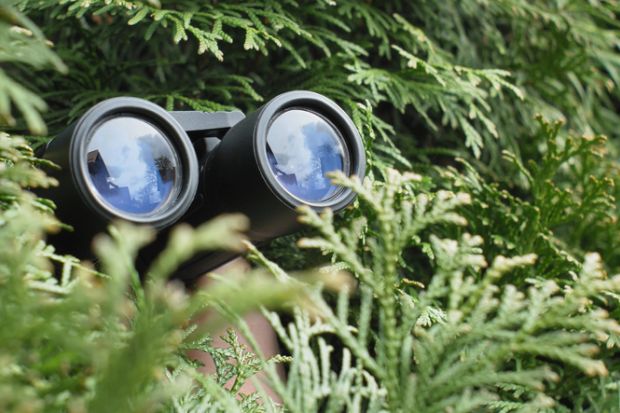US agencies involved in guarding against foreign espionage are failing to calibrate their enforcement actions to the actual level of threat associated with research universities, the top government auditing agency has concluded.
The US Government Accountability Office (GAO), in an analysis requested by Republican members of Congress, found that key federal agencies generally are not doing enough “to understand where the threat is greatest” in academic science, said its lead author, Kimberly Gianopoulos, the director of international affairs and trade at the GAO.
At the same time, the GAO review notes frustration among agency officials over the fact that foreign adversaries are taking advantage of the open environment in US academic science, leaving valuable findings to be taken abroad before they reach the point of classification.
“According to some of these officials,” the GAO notes, “the evolution of emerging technologies outpaces the regulatory agencies’ ability to identify them” and incorporate them into government lists of sensitive technologies. “Several officials emphasised that this lag creates challenges that foreign adversaries are exploiting,” it says.
The agencies identified in the report include the FBI, US Immigration and Customs Enforcement, and the Office of Export Enforcement inside the US Department of Commerce.
The report comes as leaders of both major US political parties struggle ever harder, in the face of fast-moving technologies, to find a workable middle ground between protecting the nation’s critical research discoveries and keeping open essential lines of global scientific collaboration.
In one high-profile aspect of that dilemma, the Biden administration has promised to back off a Trump-era criminal crackdown on research scientists with ties to China, but it has not yet fulfilled its promises to make clear to universities and their faculty how it would create a more predictable environment for their work.
The GAO, in its analysis, calls on the federal agencies involved in national security to work harder at understanding academic science and learning exactly where the greatest risks exist.
Commerce officials, for instance, do not base their work with universities on any systematic assessment of risk factors, the GAO says. The US Department of Homeland Security does compile a priority ranking of about 150 universities, and the FBI offers some guidance to its agents, although both agencies “base these efforts on only one risk factor”, the GAO says.
Improving those practices could improve national security by building “stronger two-way relationships with university officials,” it adds.
Register to continue
Why register?
- Registration is free and only takes a moment
- Once registered, you can read 3 articles a month
- Sign up for our newsletter
Subscribe
Or subscribe for unlimited access to:
- Unlimited access to news, views, insights & reviews
- Digital editions
- Digital access to THE’s university and college rankings analysis
Already registered or a current subscriber? Login










